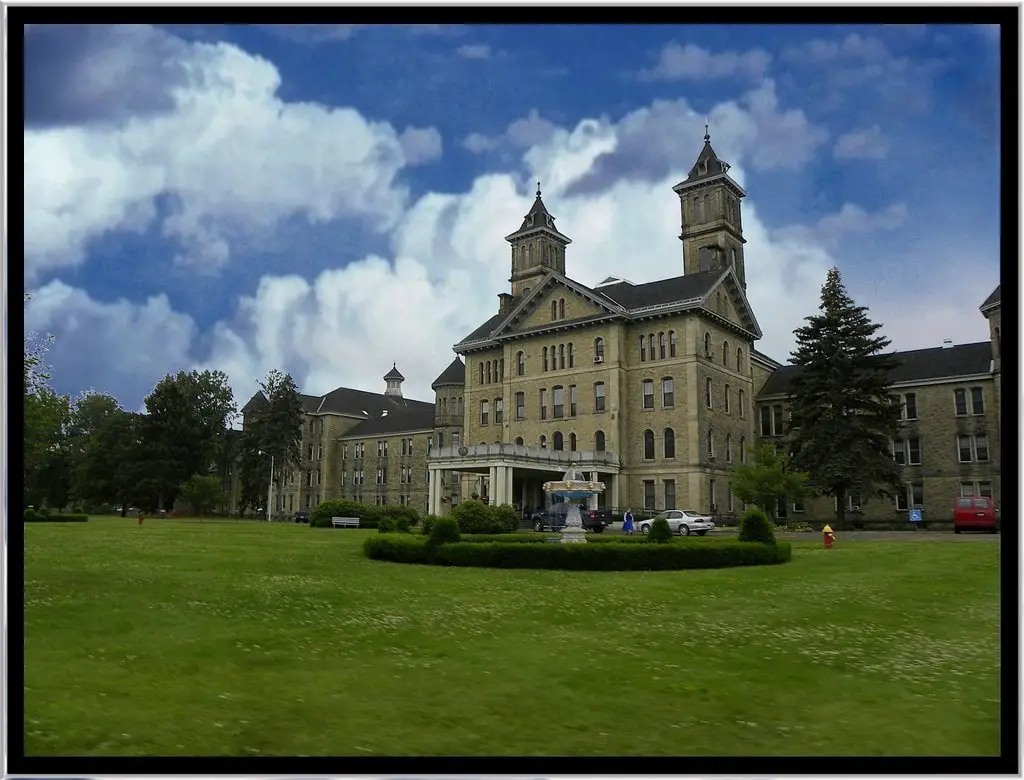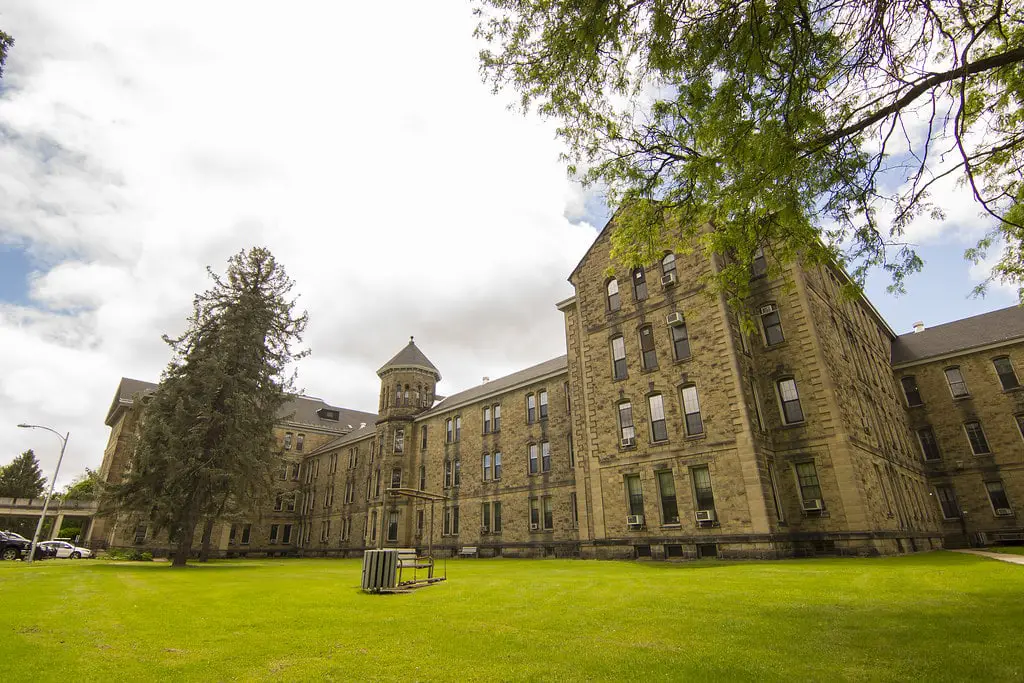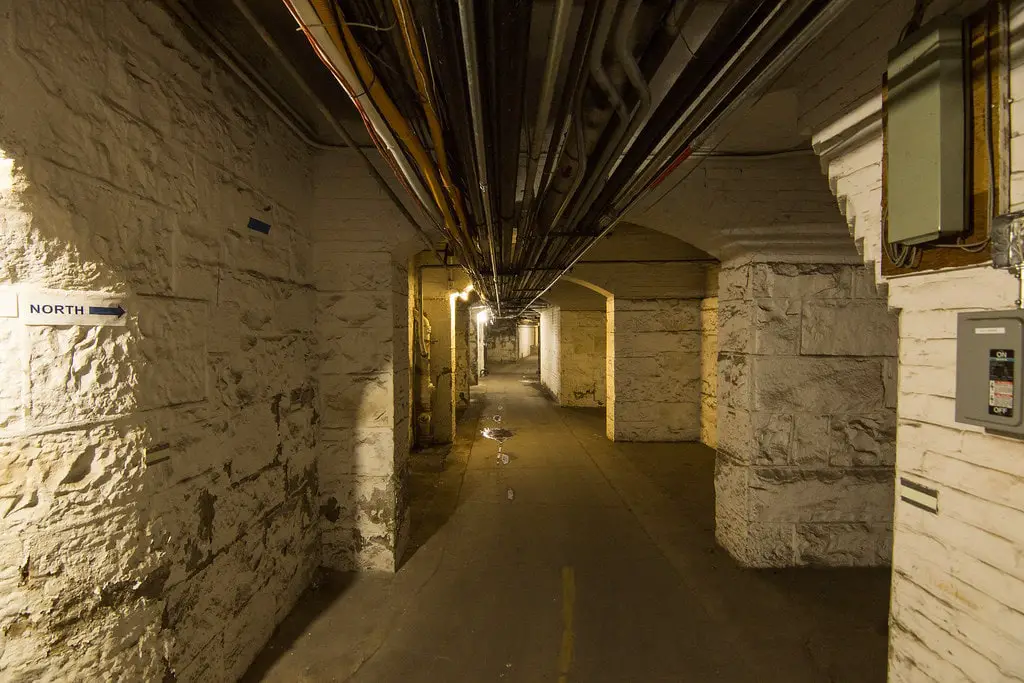A Beacon of Hope: The Establishment of Warren State Hospital
Nestled in the Northwestern district of Pennsylvania, Warren State Hospital has been a longstanding symbol of hope and recovery for the mentally ill since its inception in the late 19th century.
Its establishment was authorized by an act of Assembly in 1873, which empowered the Governor of Pennsylvania to appoint three commissioners to select a site and construct a state-of-the-art hospital for the insane.
These commissioners—General James A. Beaver, Dr. William Corson, and Dr. John Curwen—were renowned for their expertise in state care for the mentally ill.
The commissioners quickly purchased three contiguous farms in Conewago township, Warren County, spanning 330 acres. This grand scale reflected their ambitious plan: a purpose-built hospital that would provide superior care for the mentally ill. With the support of experienced architect John Sunderland, the hospital began to take shape.
The Architectural Marvel: Building the Hospital
Constructed under the Kirkbride Plan, a design philosophy emphasizing natural light and fresh air, the main hospital was a marvel of its time. It included a central building with four stories, surrounded by three horizontal wings on each side connected by transverse wings.
The hospital also featured a laundry, kitchen, machine shop, and carpenter shop, ensuring it was fully equipped to support its residents.
The construction of Warren State Hospital was a monumental task. Despite legislative appropriations not keeping pace with the work progress, leading to some delays, the building was completed after eight long years. The final cost was $872,000—a sizable sum for the time, but nearly $200,000 less than initially estimated.

A Grand Opening: The Hospital in Action
With the building completed, Warren State Hospital officially opened its doors on October 5, 1880. The opening ceremonies marked the beginning of a new chapter for mental healthcare in Pennsylvania.
The hospital was transferred to a Board of Trustees on August 1, 1881, who assumed full responsibility for its operation. Among the first trustees were notable figures such as L. D. Wetmore and George N. Parmlee.
The hospital was initially led by Dr. D. D. Richardson, who was appointed as superintendent and physician in January 1880. However, Dr. Richardson resigned within a year and was succeeded by Dr. John Curwen, who had served as a commission member that established the hospital.

Beyond the Hospital Walls: The Scenic Beauty
Not just a hospital, Warren State Hospital also boasted a sprawling farm spanning 1044 acres. The land was acquired over time, including areas on both sides of the Conewago River.
The farm was highly productive, supplying the hospital with milk, vegetables, meat, and fruit. It also provided employment opportunities to patients, contributing to their therapeutic experience.
The hospital was in a naturally beautiful setting, with the Conewago River enhancing the picturesque landscape. The principal building stood about 1500 feet from the river bank, with the land gradually sloping towards it.
The landscape was meticulously designed by Donald G. Mitchell, a renowned landscape architect, adding to the therapeutic environment.

Present Day: A Continued Commitment to Mental Healthcare
Fast forward to today, Warren State Hospital remains an active institution. It continues to provide a range of services to its residents, including psychiatric treatment, psychological services, social services, and rehabilitative services.
The hospital collaborates closely with the Warren County Behavioral Health and Intellectual disAbility Program and Warren County Human Services, ensuring comprehensive care for its residents.
Over the years, Warren State Hospital has evolved and adapted to serve its residents better. It has introduced various programs and initiatives to enhance its residents’ quality of care and life.
One of these innovative programs is the Community Hospital Integration Project Program (CHIPP), which helps residents transition back into the community. This program has seen significant success, furthering the hospital’s commitment to mental healthcare.

Warren State Hospital’s continued operation is a testament to its enduring commitment to serving the mentally ill. It stands as a beacon of hope in the Northwestern district of Pennsylvania, a testament to the state’s unwavering dedication to mental health.
Its history is a rich tapestry of medical breakthroughs, architectural innovation, and patient-centered care, all of which remain integral to the hospital’s operations today.
The hospital has been more than just a place for treatment since its inception. It has been a sanctuary for those in need, a place where they could find solace and support. The hospital’s staff have played a crucial role in this regard, providing compassionate care and ensuring the well-being of the residents.
As we look to the future, the hospital continues to uphold these values, relentlessly pursuing the noble goal of providing the best care for the mentally ill.








